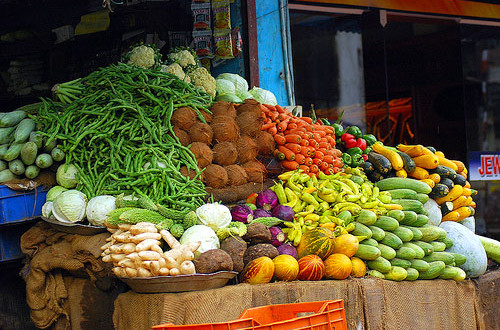- Pakistan’s agricultural products becoming uncompetitive in international market
ISLAMABAD: On top of its plans to increase regulatory duties, the government is now planning to strictly enforce non-tariff barriers (NTBs) on the imports of food items in a bid to reduce the import bill.
Using poor quality of imported food items as a pretext, Ministry of Commerce (MoC) has asked Plant Protection Department (PPD) of Ministry of Food Security and Research to ensure strict implementation on quality/standard rules on import items at ports, said sources.
The ministry will also hold a meeting on the issue to ensure strict enforcement of set rules of quality at ports as discussed at Economic Coordination Committee’s meeting. The ministry, in a new move of “Imports Rationalisation”, had earlier decided to discourage unnecessary imports of agricultural products by strictly implementing the quarantine standard under the sanitary and phytosanitary (SPS) measures, said the sources.
The ministry has also shown its concerns over non-availability of officials of PPD at ports and their negligence in inspecting the imported food items.
In a bid to reduce imports bill, the government, apart from increasing regulatory duties, is in a mode to create non-tariff barriers (NTBs) for imports of food items in safety and quality standards under the SPS agreement, and technical standards sought under the technical barriers to trade by the World Trade Organisation (WTO).
The SPS agreement applies to some specific areas including protection against risks arising from additives, contaminants, toxins or disease-causing organisms that protect human life from plant or animal-borne diseases, and protection from pests, diseases, or disease-causing organisms.
The SPS measures are widely used by WTO member countries because of NTBs for environmental protection, consumer safety, interests etc., have increasing impacts on regional as well global trade. The members are authorised to implement these NTBs to protect the health of humans, animals and plants, in fact, all living organisms.
WTO members maintain trade quality and standards to ensure that merchandised food is safe for buyers and to prevent the spread of pests or diseases in living organisms. But strict health and safety regulations are being used unnecessarily as an excuse for protecting interests of domestic producers or to maintain a comparative advantage in foreign trade.
Official documents available with Pakistan today show that Pakistan’s agricultural products overall are fast becoming uncompetitive due to their costly production and low quality. The reasons for making Pakistani agricultural products uncompetitive were the unavailability of modern technology, higher prices of fertilizers as compared to neighbouring countries, and an absence of subsidies.
As a result, the surplus food items were unable to be exported.
Higher prices of urea, Diammonium Phosphate (DAP) fertilizer etc. and higher tariff of electricity/ gas have drastically increased the cost of doing business. Pakistan’s competitor India is providing a comparatively lower price for fertilizers and cheaper electricity to the farmers.
As per the comparative study of urea, a bag of Rs1,408 in Pakistan is available at around Rs500 in India, with the huge difference of over Rs900/bag. The same rates of difference were also reported in other fertilizers being produced and distributed in Pakistan and India.
Besides that, the introduction of health and qualitative seeds in India is also facilitating the country to produce exportable agricultural products.

























Its right we should create our own resources instead of importing them like we have created so many big food brands in Pakistan which we can check on savyour so we can also produce the other recourses too.
As a matter of fact, rampant corruption bring inefficiencies in every sector of the economy make too costly to do business, resulting higher cost of production in agriculture, industry, commerce, make exports in competitive as compared to our competitors in the region. This is something to ponder by those who matter in this context. m.aslam ch